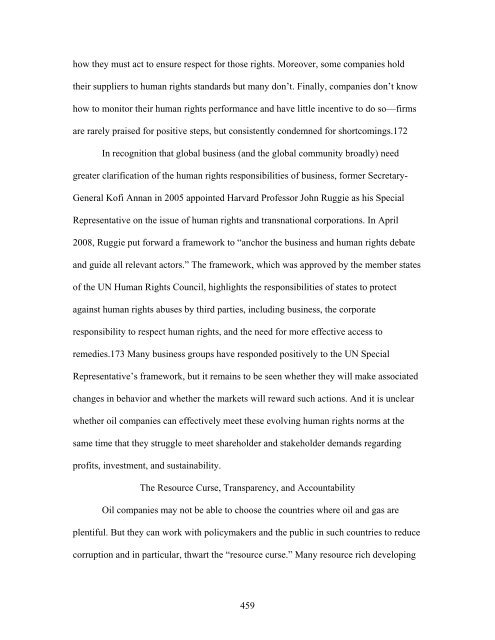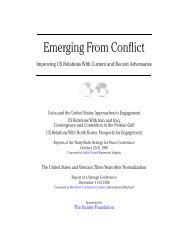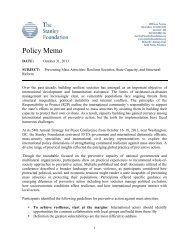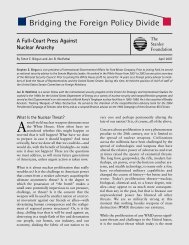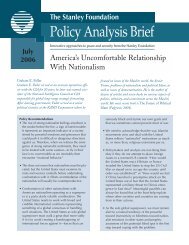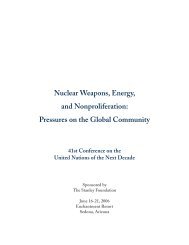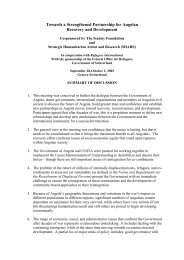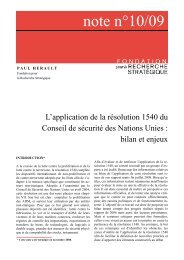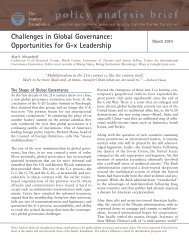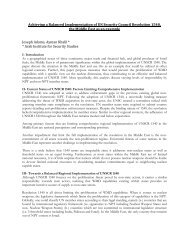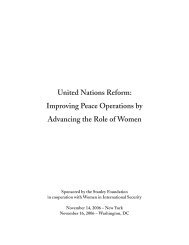444 By Susan Ariel Aaronson and David Deese With a reaction by ...
444 By Susan Ariel Aaronson and David Deese With a reaction by ...
444 By Susan Ariel Aaronson and David Deese With a reaction by ...
- No tags were found...
Create successful ePaper yourself
Turn your PDF publications into a flip-book with our unique Google optimized e-Paper software.
how they must act to ensure respect for those rights. Moreover, some companies holdtheir suppliers to human rights st<strong>and</strong>ards but many don’t. Finally, companies don’t knowhow to monitor their human rights performance <strong>and</strong> have little incentive to do so—firmsare rarely praised for positive steps, but consistently condemned for shortcomings.172In recognition that global business (<strong>and</strong> the global community broadly) needgreater clarification of the human rights responsibilities of business, former Secretary-General Kofi Annan in 2005 appointed Harvard Professor John Ruggie as his SpecialRepresentative on the issue of human rights <strong>and</strong> transnational corporations. In April2008, Ruggie put forward a framework to “anchor the business <strong>and</strong> human rights debate<strong>and</strong> guide all relevant actors.” The framework, which was approved <strong>by</strong> the member statesof the UN Human Rights Council, highlights the responsibilities of states to protectagainst human rights abuses <strong>by</strong> third parties, including business, the corporateresponsibility to respect human rights, <strong>and</strong> the need for more effective access toremedies.173 Many business groups have responded positively to the UN SpecialRepresentative’s framework, but it remains to be seen whether they will make associatedchanges in behavior <strong>and</strong> whether the markets will reward such actions. And it is unclearwhether oil companies can effectively meet these evolving human rights norms at thesame time that they struggle to meet shareholder <strong>and</strong> stakeholder dem<strong>and</strong>s regardingprofits, investment, <strong>and</strong> sustainability.The Resource Curse, Transparency, <strong>and</strong> AccountabilityOil companies may not be able to choose the countries where oil <strong>and</strong> gas areplentiful. But they can work with policymakers <strong>and</strong> the public in such countries to reducecorruption <strong>and</strong> in particular, thwart the “resource curse.” Many resource rich developing459


